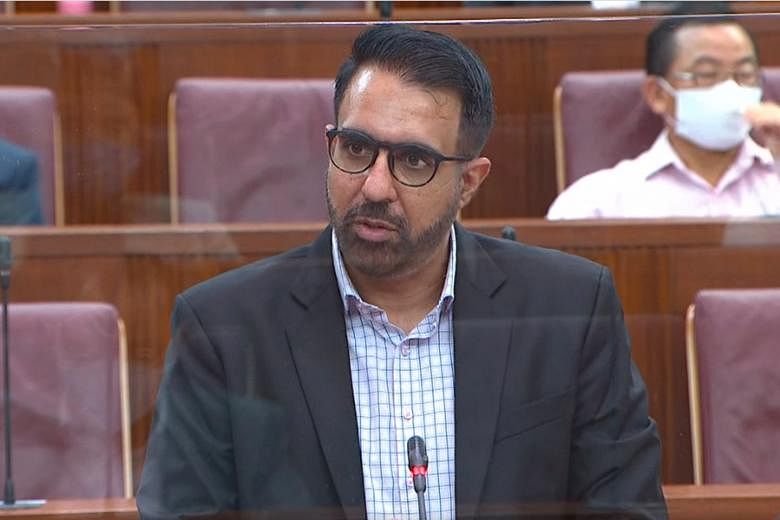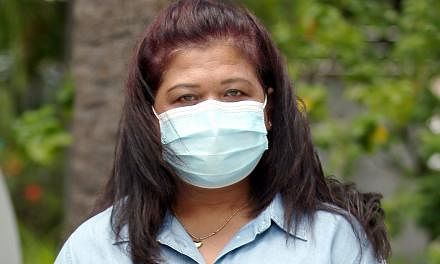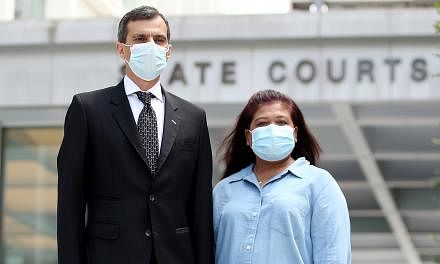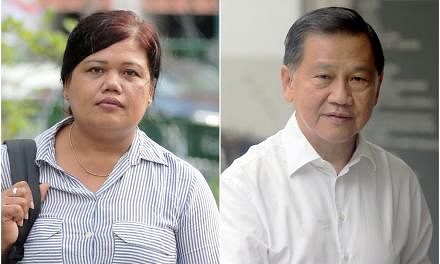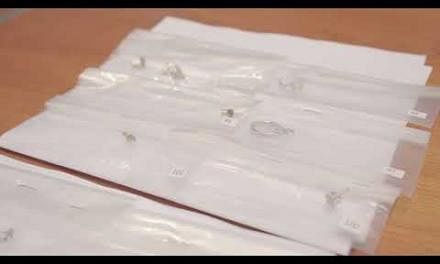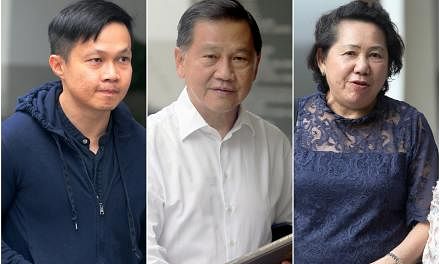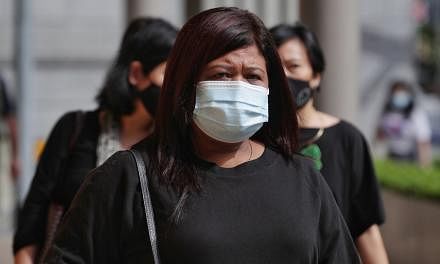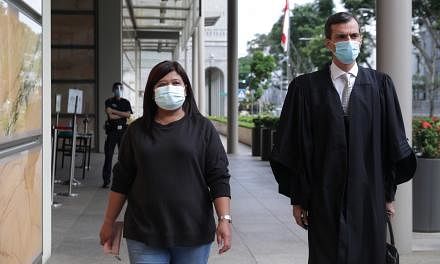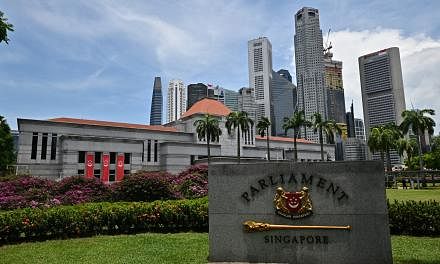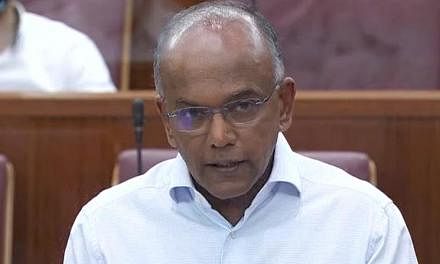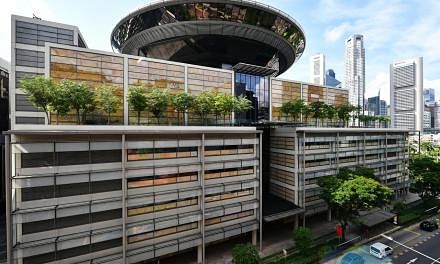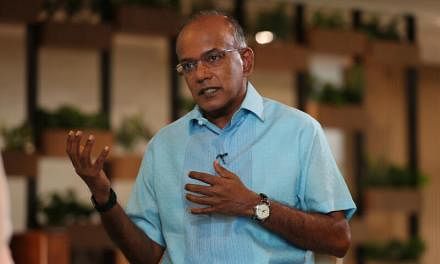SINGAPORE - More should be done to level the playing field for defence lawyers, so that justice can be furthered, said Leader of the Opposition Pritam Singh in Parliament on Wednesday (Nov 4).
He also made a call for the dual roles of the Attorney-General as the Government's legal adviser and public prosecutor to be separated, so as to avoid going the way of other countries, where attorneys-general have been subject to political pressure.
Mr Singh was speaking during the debate on a motion moved by Workers' Party chairman Sylvia Lim (Aljunied GRC) to speak on issues raised by a court case involving Ms Parti Liyani, the former domestic worker of former Changi Airport Group and Surbana Jurong chairman Liew Mun Leong.
To level the playing field for the defence in court, Mr Singh called for the prosecution's duty to the court to disclose relevant material not favourable to its case to be codified in the Criminal Procedure Code.
While the prosecution's obligation to do so has been set out in case law from a landmark 2011 Court of Appeal judgment, the prosecution has not necessarily done so in all cases, said Mr Singh, who cited the recent case of Dr Wee Teong Boo, who was cleared of all charges in June after being accused of raping and molesting a patient at his Bedok clinic.
In its judgment on Dr Wee's case, the Court of Appeal had ruled that the prosecution did not make available to the defence documents that would have established clear and material inconsistencies in the prosecution's evidence, he noted.
"Almost 10 years after (the 2011 judgment), it is apposite to ask how deeply the prosecution's common law disclosure obligations have been internalised in our criminal justice system," said Mr Singh.
"In Miss Parti Liyani's case, the lack of forthrightness of the deputy public prosecutors in informing the trial court about the serviceability of the DVD player makes a similar point about fairness in our adversarial system. Crucially however, it raised the public's eyebrows about our prosecutorial culture," he added.
While he stressed that cases of non-disclosure of such information by the prosecution is not synonymous with the suppression of evidence, revelations of non-disclosure such as in Dr Wee Teong Boo's case risk crystallising such a public perception.
The Chief Justice had in October given the go-ahead for investigations into two deputy public prosecutors to commence, following a misconduct complaint by Ms Parti.
During the trial, the DPPs showed Ms Parti that the machine could play a video digitally stored in the hard disk. But during the appeal, it was shown that it could not play DVDs. The Chief Justice had found that there was a prima facie case that the DPPs' conduct might suggest a lack of candour on their part.
Mr Singh suggested that defence counsel be given the option to interview witnesses whose statements are helpful to the defence in a police station. This will reassure witnesses and allow the defence to clarify their statements before trial, and also enable the defence to decide whether to call the witness to court.
While the Attorney-General serves as the Government's legal adviser to protect the interests of the Government, as public prosecutor, the office represents the public, said Mr Singh.
"(He) must prosecute without fear or favour, even if it means damaging the reputation of the government of the day, or prosecuting ministers or even the prime minister. This duality of roles in one person brings with it a potential conflict of interest for the AG, which can create potential for abuse," he said.
To remove this possible conflict of interest, the role of government legal adviser should be split from the role of public prosecutor, with neither role subordinate to the other, he said.
Mr Dennis Tan (Hougang) also proposed having a separate dedicated judicial service in the State Courts, in order to provide more distance between prosecutors and those working as magistrates and judges.
Currently, he noted, the Legal Service Commission chooses legal officers who may be posted from the ministries or the Attorney-General's Chambers (AGC) into the State Court judiciary, and then out again.
Having a separate judicial service would avoid a situation where magistrates and judges find themselves having colleagues from the AGC - some with greater seniority - arguing cases before them, while knowing that they may themselves be posted back to the AGC in the future, he said.
Meanwhile, Mr Leon Perera (Aljunied GRC) called for an ombudsman to be formed, given the questions of wider access to criminal justice and avenues of redress for those with lesser means arising from Ms Parti's case.
He said such an ombudsman will function as an independent office open to Singaporeans of all backgrounds and income levels to investigate complaints about unfair administrative decisions or actions of a public agency, including delay, negligence, inconsistency, oppressive behaviour or unlawfulness. This would extend to the conduct of all public servants, including the police and the prosecution service.
In response to Mr Singh, Home Affairs and Law Minister K. Shanmugam agreed it is unsatisfactory to let the prosecution's disclosure requirements remain a common law principle.
The Government is looking at setting out these disclosure requirements in statute, and that it has been having internal discussions on this since early this year (2020), he said.
Mr Shanmugam also reiterated to Mr Tan his point made earlier that all movements in the legal service are overseen by personnel boards or committees, which are chaired by the Chief Justice and the Legal Service Commission, of which the Chief Justice is president.
He had also earlier explained that the Legal Service Commission believes that rotation provides access to a larger pool of talent and helps its officers become more well-rounded, among other things.
In response to Mr Perera, Second Minister for Law Edwin Tong pointed out that ombudsmen set up in other countries have their failings and that Singapore currently has a number of external review panels, though he agreed that there is room to refine the justice system.
On Mr Singh's call for a separation of the roles of the Attorney-General, Minister in the Prime Minister's Office Indranee Rajah said there are constitutional safeguards against potential conflicts of interest.
For instance, in a hypothetical scenario where the prime minister is suspected of corruption and refuses to proceed with investigations, the Constitution provides that the director of the Corrupt Practices Investigation Bureau (CPIB) can go to the president.
There have also been instances where the Attorney-General has prosecuted high-level civil servants, as well as government-linked companies, said Ms Indranee, who is Leader of the House.
However, Mr Singh maintained that such a conflict of interest is still possible, and that separating the roles can reduce the prospect of implicit bias in the eyes of the public.
